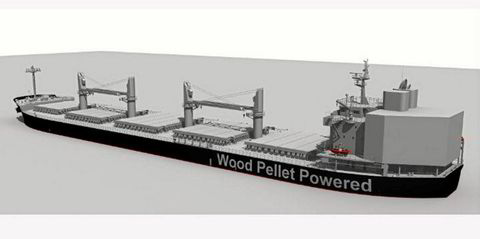As rates perk up, dry bulk is turning bullish.
Stifel analyst Ben Nolan opened and closed Marine Money's bulker owner panel on Tuesday with a poll of attendees where at the start 59% said the sector had seen the bottom, with that figure rising slightly to 61% by the end.
In addition to viewers, the three New York-listed owners on the panel Genco Shipping & Trading's John Wobensmith, Hamish Norton of Star Bulk and Golden Ocean Group head Ulrik Andersen believed the sector had hit the bottom.
"My own sense is that demand is picking up," Norton said.
"In fact, demand seems to be picking up fairly rapidly, particularly iron ore movements seem to have picked up both from Australia and Brazil. We're not seeing as much pick up in coal, but grains are also picking up pretty well from South America. We expect the US grain season to be good."
Both Andersen and Wobensmith said the near-term upturn would be driven by demand coming back online after the Covid-19 pandemic, but that long term a small orderbook driven by uncertainty around environmental regulations would be the driver.
"The industry has had supply issues that really started back in '14, and really saw '15 and '16 create problems," Wobensmith said. "I think all of that is behind us. I would have loved to see more scrapping over the last few months.
"We are seeing that pick up pretty significantly."
Tuesday, the Baltic Dry Index broke 1,000 for the first since late December, jumping 81 points to 1,054 as rates on its benchmark routes rose to $14,786 per day.
It had fallen as low as 393 on 14 May.
Wobensmith said the gains were driven by China with "fringe dry bulk trades" like Japanese iron ore imports and coal shipments to India and Europe not back to full strength.
"There's still a lot more to open up, even with China trying to import as much as it can now," he said.
Even if China suffers another outbreak — the country recently re-implemented lockdown measures in Beijing after 36 new cases were reported Monday — Norton said it had been dealing with Covid-19 the best, meaning the impact would be smaller.
"Their market share of steel production is in excess of 50% globally. Steel production is really the main driver of the dry bulk trade," he said.
"Yes, we're very sensitive to China. That's the bad news. The good news is that China has been the best economy to be sensitive to in this cycle."






